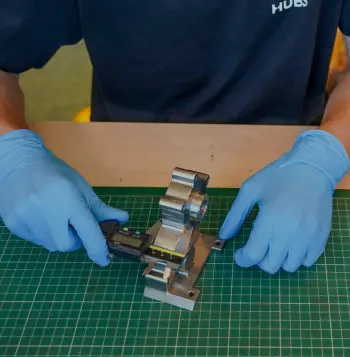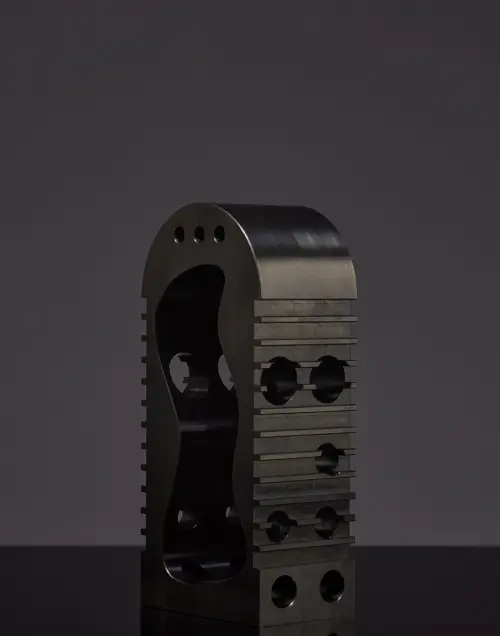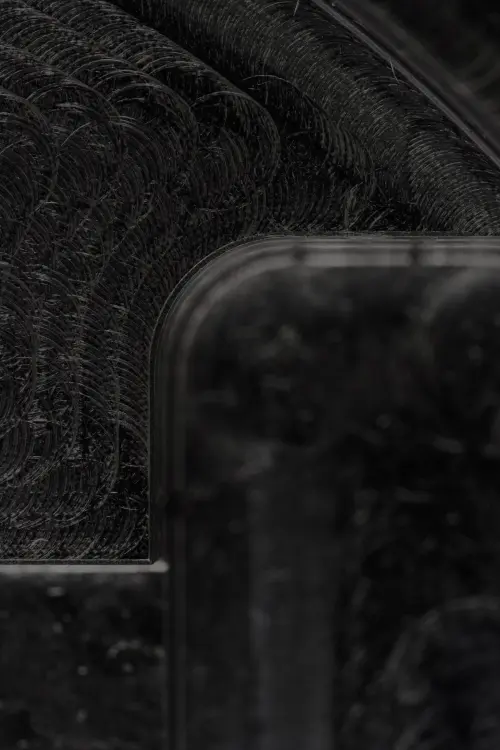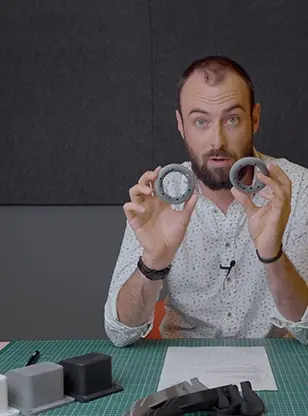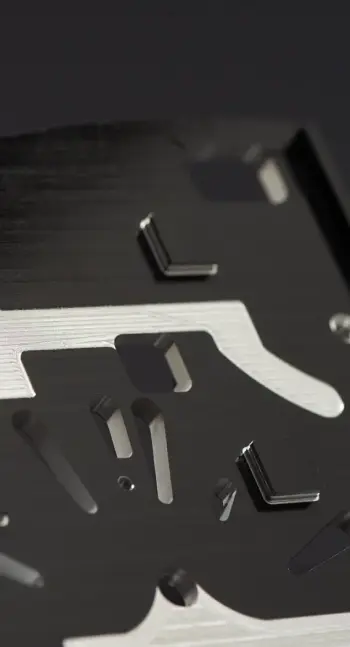The Protolabs Network Standard
Part cleaning & general finishing
Edge breaking & deburring
Our standard requirements for edge breaking and deburring are as follows:
-
Deburring comes as a standard with all finishes
-
Standard: Deburring + Break Sharp Edges (Chamfer)
-
No secondary burrs allowed
-
Chamfer size: 0.25mm +/-0.125mm
-
Internal threads, bores and blind holes will also be deburred
with the aid of deburring brushes when need be.
-
Chamfers will be done during the machining steps as much as possible, to ensure a consistent look.
When not possible, these can be done by hand with a regular hand deburring tool.
Non-standard requirements
Other non standards options for deburring can be indicated on the quote as aditionnal requirements. They will not be instantly quoted and need to be approved by our internal team of mechanical engineers before being sent to production.
We propose two options on a case-by-case basis: "Deburring + Keep Sharp edges" and "Deburring + Rounded Edges".
Cleaning and protection
For all non-corrosive materials:
All parts will be properly cleaned and de-greased after the machining and finishing steps. Cleaning alcohol is a common chemical used on all metals.
For example: parts containing films of cutting fluid, chips, or having traces of cutting fluids, will be rejected by our QC team.
For corrosive materials: (non-stainless steels, brass, copper, etc.):
All corrosive materials will be prepared as such:
-
Parts will be dipped in rust inhibition oil, such as ITW RP 631 oil (thick oil that will dry and leave a thick coating on the parts). The oil is always RoHS.
-
Parts will be protected in "VCI paper" or silver saver paper, also known as rust-inhibition paper.
-
For copper and brass silver saver paper will be used or packaging of the parts will be dry vacuumed.
-
Parts directly will never be wrapped in plastic wrap, or foam, or paper, as this would lead to rust stains appearing while in transit, especially in sea freight.
